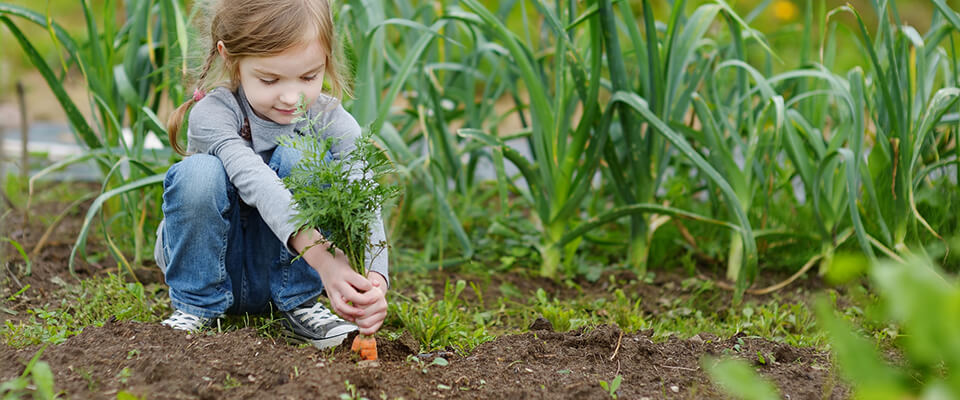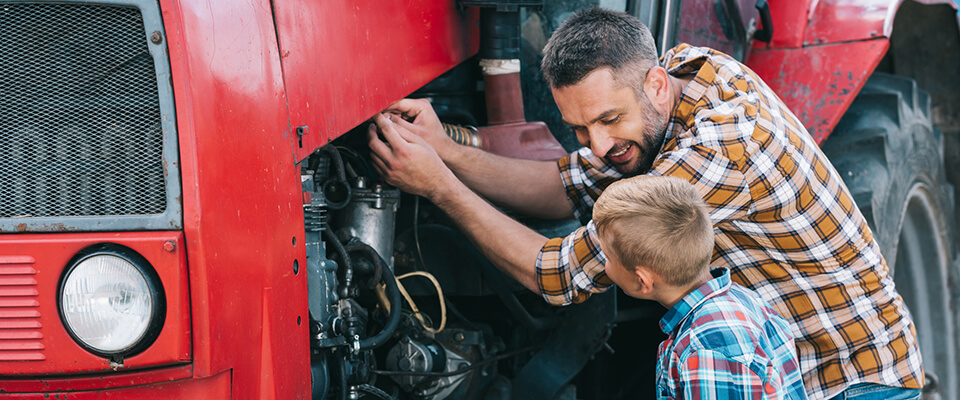Kids who have grown up on a farm know how to stay safe, but it’s still important to refresh their mind so they’re aware of all of the dos and don’ts on a farm. Also, during the summer months when kids are off school, they may spend more time on the farm with their friends. So, during this time, it’s important to ensure that any kids that will be on your farm are kept safe and know how to behave on a farm.
1. Create a safe place on the farm for children
There are lots of open spaces to play on farms. However, there are also areas that are off limits, no matter what. The first thing you should do to keep kids safe on the farm is to create a ‘safe play’ area that is fenced off and in full view of your home. It would be helpful to add clear danger signs that children can read as well as mesh fencing surrounding the area that children can’t climb or slip through.
2. Take a walk and talk to the kids
Once you have your safe play area established, you should take the time to walk around the farm with the kids and talk about the dos and don’ts when on a farm. Farms are not playgrounds and educating your kids by pointing out the dangers on a farm and the areas that are off limits will help to keep them safe.
While talking to them, you could:
- Point out the danger signs and barriers and talk about what they mean
- Show them where water and slurry are stored.
- Remind them that all machines and livestock are off-limits.
3. Let them help safely
Of course, children will want to help out around a farm and it’s fun to let them, but just make sure their jobs are age-appropriate and that they are always supervised. Letting children help in a safe way will help ease their curiosity of the farm and should help stop them from wandering around the farm and potentially getting into trouble. So think about what jobs you can get the kids to help you out with around the farm, they’ll love getting involved!
Also, remember to dress the kids right when they’re playing on the farm to ensure they are protected and can be seen. You could give them a high-vis jacket or other reflective gear.

4. Get to know the animals
Children love to be around the farm animals and while they aren’t ferocious, animals can be unpredictable and dangerous if a child is in the wrong place at the wrong time.
Two key things to remember:
- When moving cattle on your farm, it’s important to make sure the children are standing away from gateways.
- Remind your children that a cow who is trying to protect her babies could get scared and try to attack. Even if an animal isn’t trying to hurt someone, just their size can hurt a child or person if they’re in the animal’s way.
5. Secure everything around the farm
There are many hazards on a farm so it’s important to assess any risks on your farm and secure everything possible to reduce the risk of accidents occurring.
Some key hazards to secure:
Slurry pits and lagoons should be safely secured, and children should never be in the yard during slurry agitation or spreading.
Keep sheep dips and water tanks covered when they’re not being used.
Do a risk assessment on the farm and look out for areas that are a drowning risk within the farmlands and the yard. On a farm there are often containers and spaces that can be filled by rainwater, so it’s important to monitor your farm and empty and secure everything to reduce the risk of a drowning occurring on the farm.
6. Farm machines aren’t toys
Farm machinery can be very dangerous if it’s not operated correctly. Anyone under the age of 16 should never operate self-propelled machinery, power driven machinery with cutting, splitting, or crushing mechanisms. Children over 16 years-old should receive formal training before they’re allowed to operate tractors.
Children under 7 should not be allowed in the cab of the tractor or other machinery. Reduce the risk by setting clear rules and avoiding giving ‘spins’ on tractors.
Some key best practices when operating machinery on a farm:
All machinery should be locked when not in use or left unattended.
Make sure keys aren’t left in the vehicle and controls are left in neutral.
Lower any loaders to the ground and apply the hand break.

7. First aid 101
Refresh everyone’s mind on basic first aid, especially the kids. Take comfort that if they’re in a situation where someone gets hurt, they’ll know what to do. Knowing to ring 112 or 999 and knowing to put pressure on a wound could help them help others in an emergency.
8. Prevent falls
Climbing is something children love to do, but it can obviously pose a huge danger.
To help prevent falls and accidents on the farm, you should:
Stop access to areas at height and enclosed pens.
Store ladders flat on the ground to prevent kids from climbing.
Supervise children who are inside the tractor cab to make sure they don’t fall from the door or the rear window.
Remind them not to climb on bales or tyres that may look fun but aren’t secure and could easily tumble.
Make sure all gates and pillars are secured and won’t fall over in case kids try to climb over the gate instead of opening it.
9. Chemicals and poisons
Keep all pesticides, cleaning chemicals, and animal medicine in their original containers, locked securely out of reach of children. It is good practice to never use drink bottles for the storage of harmful substances.
Consider what plants may be harmful that grow on your land. Children should never eat wild berries or mushrooms without first checking with an adult.
10. Clean those hands!
After playing on a farm, it’s more important than ever for your children to wash and scrub their hands properly.
When they return home from playing on the farm, make sure they wash their hands as soon as they come inside and always before eating.
Animals can also transmit diseases, so make sure children wash their hands after contact with animals, their housing or their feed.
Consult the agricultural code of practice for more tips, including information and guides to ensure you are following the Farm safety code of practice.
Exploring the farm is what most young farmers love to do, so reminding them of the ways to stay safe will help them (and you!) have safe fun and peace of mind.
Visit our farm insurance page for more information on farms and the benefits of having your farm insured.


